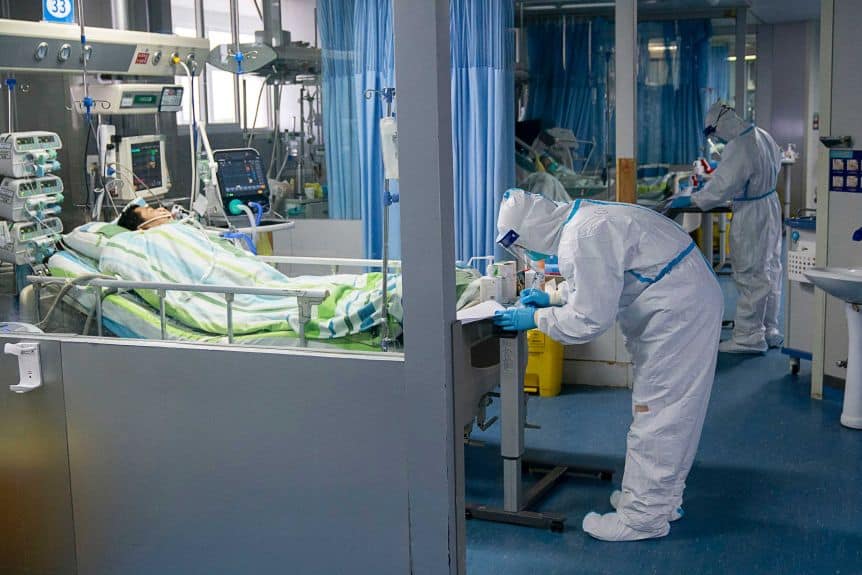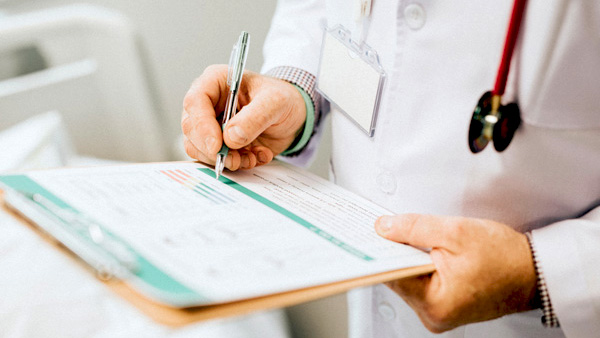“Just keep in mind: the more we value things outside our control, the less control we have.”- Epictetus
Since the COVID-19 pandemic, we as a global community, have made our own “Sophie’s choice.” We have chosen our health over the economy- the only right thing to have done. All efforts in the public health sector have focussed on “flattening the curve” but another metric worth watching is the capacity of hospitals to deliver critical care in intensive care units (ICU) with ventilators. This is the index on whether hospital systems will be overwhelmed or not. Therefore, expanding our healthcare system capacity is vital to saving lives, because once overwhelmed, it results in an increase in the rate of mortality, and in turn, slow our return to the status quo.
Every day the numbers of COVID-19 are increasing, threatening our efforts to “flatten the curve” and at the same time overwhelming the capacity of our ICUs leading to more deaths. That is why our efforts should be laser focused on increasing four to five fold the capacity of each country’s ICU beds and ventilators. Of course, this will depend on each country’s economic capabilities and healthcare infrastructure but this is what is needed right now.

Global cooperation and trust can also lend a solution helping hand here. Countries should be willing to share information, seek advice and produce and distribute medical equipment, especially testing kits and ventilators. A coordinated global effort could greatly accelerate production and make sure life-saving equipment is distributed more fairly and evenly.
Furthermore, we might consider a similar global effort to pool medical personnel. Countries that are currently less affected could send medical staff to the worst-hit regions of the world like what happened recently when Cuba sent 53 health professionals to Lombardy, Italy, to help contain the COVID-19. This can be a reciprocal relationship, so that if later on the focus of the epidemic shifts, help could start flowing in the opposite direction. These actions accomplish several things: they provide help in their hour of need; and personnel gain invaluable experience.
Critical care capacity revolves around the no. of ICUs and ventilator units, hospital supplies and the trained workforce that has available what it needs to do its job properly. That means that we need to consider the following five points:
- Cease all non-emergency cases across hospitals and other sites of care. This is estimated to free up to 30 percent bed capacity, caregiver capacity, and a portion of ventilator and personal protective equipment (PPE) capacity almost immediately. Furthermore, accelerating approval of treatments, as well as scaling-up of manufacturing and distribution of the treatments that reduce severity or duration of critical care requirement, can all lead to reducing length of stay (and thus freeing up more beds).
- Expand on alternative hospital capacity. For example, converting outpatient/ambulatory facilities or even converting non-healthcare facilities to acute ones (especially hotels). In addition, mobilizing existing navy hospital ships may help to take on non-coronavirus patients. However, these enormous ships (designed for trauma and combat casualties) risk becoming viral incubators- just as prior cruise ship outbreaks have demonstrated. Accidental or unknowing admission of infectious or infected people to bunks outside of the hospital ship’s relatively small isolation wards poses a particular risk to the both patients and the large crew required on board. If a rapid test or anti-viral for COVID-19 becomes available, the hospital ships would be at far less risk of becoming an unintended hotbed of viral infection. With better disease control tools, every single naval hospital ship could be converted into makeshift recovery wards, thus supporting/reinforcing medical care in a number of big coastal cities.
- Train additional frontline staff to deliver on capacity expansion.For example, doctors in their final year can be fast-tracked (to help in telehealth hotlines, triaging patients or collecting samples) and nurses trained on mechanical ventilator care. Curricula to upskill healthcare workers in a matter of days have already been developed in both Asia and Italy.
- Increase critical supplies to keep current facilities fully functional and keep healthcare workers protected.There is a supply and demand issue that needs to be considered here: For supply we can take stock of remaining inventory in the market, increase capacity of existing N-95 suppliers, import from other countries and source from non-medical industries; For the demand side of the equation, we can prioritize and extend usage, re-use and reprocess, adjust clinical workflow and adjust care team guidelines.
- Slow the demand for critical care. Most countries and states/provinces have deployed public health measures to slow the spread of the virus (for example, physical distancing, shelter-in-place and closing of public areas. A number of countries have used technology effectively to support effective physical distancing (for example, the use of phone-based apps to minimize congestion in grocery stores). Some governments have created social and economic incentives for those in quarantine, including community-funded food delivery, income guarantees, solutions around caregiving needs, and job-security guarantees. Lastly, exponentially scaling-up testing capacity and contract tracing capability will also help the cause- the ability to test rapidly and isolate those at highest risk of infecting others will help contain a future resurgence in cases. For countries with few cases to date, rigorous testing can prevent escalation to the point where critical care capacity is strained.

Global co-operation is vitally needed right now. Given the global nature of the economy and of supply chains, if each government does its own thing in complete disregard of the others, the result will be chaos and a deepening crisis. Now more than ever governments we need to discard the veil of distrust, isolationism and xenophobia. Global solidarity without trust has no chance in stopping the coronavirus epidemic, a preview of things to come. But every adversity is a seed of opportunity. Hopefully the current epidemic will help us realize the acute danger posed by global dissent.
“A gem cannot be polished without friction, nor a man perfected without trials.”- Seneca
Plastic Surgeon BSc, MBBS, FRACS (General), FRACS (Plastics).
Regarded as one of the top plastic surgeons in Australia, Dr. Papadopoulos’ national status is underscored by his election as president of the Australasian Society of Aesthetic Plastic Surgery (ASAPS) in 2014-2016 and being appointed Board Director and Visiting Professor of the International Society of Aesthetic Plastic Surgery (ISAPS) in 2018.
Dr. Papadopoulos is a specialist Plastic Surgeon known for providing patients with exceptional care from the initial consultation, in the operating room and through to post-operative follow-up. He is the Head of Plastic Surgery at Westmead Private Hospital, as well as, the Founder and Medical Director of CosmeticCulture Clinics in Sydney.
Read about Dr Tim on Greek City Times:
Beauty and The Greek: Dr. Tim Papadopoulos Speaks One-on-One


